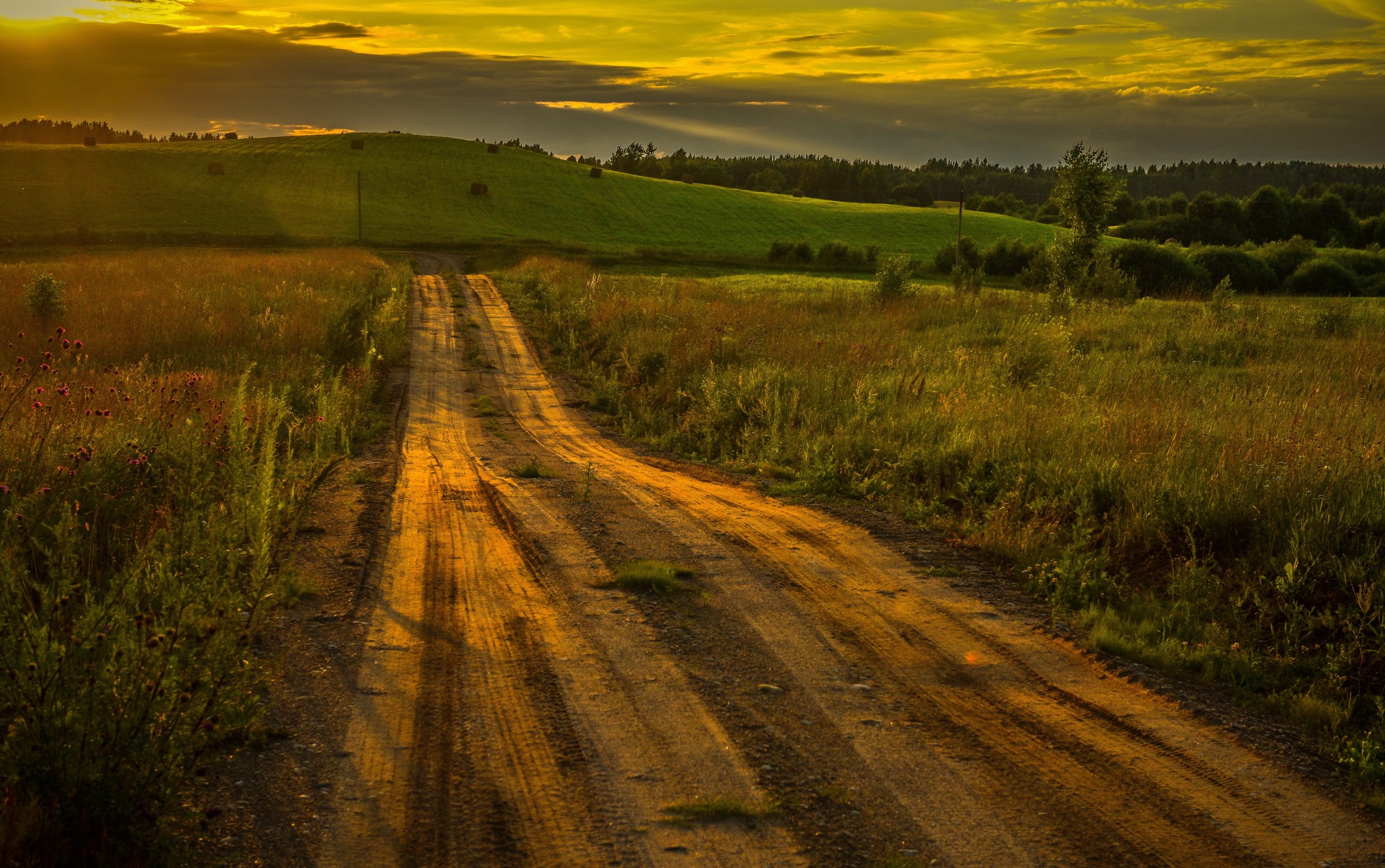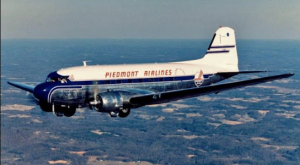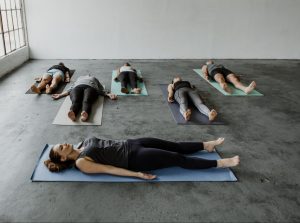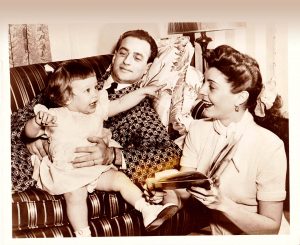
Summer Evenings
By Jim Dodson
The best part of any summer day is evening. As the light expires and the heat of day yields to the cool of night, a kind of magic realism takes possession of the world. New life stirs by degrees. Lovers inch closer on the blanket. Children light sparklers or do cartwheels on the lawn. The old ones sit on porches quietly talking, fondly recalling things, gently rocking. The village orchestra warms up on the college lawn. They’re playing Sousa and Copland tonight.
As apricot light gives way to twilight blue, it is as if the world is exhaling from a tough day in traffic or the fatigue of family vacation. Work in the garden is over. The porch swing creaks. Venus rides low in the east, the first stars visible. And oh, look — the summer’s first fireflies are out, too. The sprinkler bursts on and hisses. The cat pads home. Neighborhood sounds seem close enough to touch. Somewhere a screen door slaps shut, a woman laughs, a guitar is being played, a bath is being run, dinner served, a candle lit, wine poured, prayers said.
On such an evening, one can be forgiven the folly of thinking you just may live forever, or at least long enough to see the Blue Mosque and the Ganges at sunset.
A fine summer evening makes one briefly think all things are possible, that there is still time enough left to actually do it, that there is really no such thing as old because you can almost reach out and touch your vanished childhood. Just yesterday you were sitting in the highest seat on the Ferris wheel when it stopped to let others on, granting you both a perfect view of everything. You longed to take her hand because her hair smelled like Prell and tangerines.
Hot summer nights, mid-July
When you and I were forever wild,
The crazy days, the city lights,
The way you’d play with me like a child.
The opening lines of Lana Del Rey’s soulful “Young and Beautiful,” the theme song from Baz Luhrmann’s film adaptation of F. Scott Fitzgerald’s The Great Gatsby, express this Pyrrhic hunger for life and experience quite nicely, even though the movie itself was something of an untidy mess, not unlike the author’s own life. Will you still love me, she laments, when I’m no longer young and beautiful?
Poets and children have always found summer evenings irresistible fare. In his mesmerizing novella Enchanted Night, Pulitzer Prize-winning novelist Steven Millhauser creates an entire New England town bewitched by the supernatural power of high summer darkness. Under the influence of a full moon, children in a small Connecticut town are drawn from their beds while their abandoned stuffed animals come to life in attics across town. A gang of teenage girls roams the streets breaking into homes to steal refrigerator magnets and toothbrushes, leaving giddy notes that declare, “We are your daughters!” A store mannequin comes to life in search of love; an insomniac novelist finally leaves his mother’s house to engage in a debate about existence; and an introverted girl bathes in the moonlit surf. For anyone who has been bored by summer’s sweltering sameness, Millhauser’s evocation of a world that comes alive at dusk with secret desires and unexplored passions is nothing shy of an invitation to surrender to bittersweet imagination. Centuries before, Shakespeare worked this same turf to great effect when he made summer night dreams a fine mad romp of confused love that vanished with the morning light.
When I was young, my older brother Dickie and I seemed to live out of doors all summer. Our feet were always dirty. We ran wild through the neighborhood, or I did anyway, damming creeks and making forts where I sat on the bank and and read Classics Illustrated and dreamed of living in England. I rode my bike all over God’s green acre pretending I was there already, pedaling like an orphanage runaway down a hedgerow lane, eager to escape the gravity of my sleepy Southern life any way possible.
Henry James may truly have believed that the two most beautiful words in the English language were “summer afternoon,” but they felt bone-lonely and unbearably endless to me in my solitary outdoor boyhood, the reason I later took to golf and camping and mowing lawns. Our father was a newspaper man who moved us to four different places in the old Confederacy during the first seven years of my life, which left me with few, if any, playmates — I remember exactly none before about age 7 — but left me free to roam at will, read books and comics, explore old sheds and conduct the Punic Wars with my painted Greek and Roman soldiers in the cool dirt beneath whatever fan-cooled house we were living in. Our mother was a former beauty queen who’d lost a second baby not long ago; she sometimes napped in the long afternoons while our maid, Jesse May Richardson, ironed my father’s shirts in the kitchen, humming to the gospel tunes she dialed up on the small transistor radio in the kitchen window, the tap water in her Coca-Cola bottle sloshing back and forth as she sprinkled the fabric and sang about flying away to Jesus.
After Vacation Bible School was over, if I pestered hard enough, Miss Jesse May sometimes let me tag along with her to do the weekly shopping at the Piggly Wiggly, which was the only place in town fully air conditioned — Do step inside where it’s . . . coooool, read the sign in the front window, showing a friendly penguin with a jaunty cap. Miss Jesse May didn’t believe in dawdling and had complete authority over my personal affairs. “Don’t you dare let me catch them sandals off your feet,” she instructed firmly before briskly setting off for the vegetable aisle. “And don’t let me learn you’ve made a whisker of trouble in this store.”
I rarely made trouble, per se, sometimes just making temporary “king seats” out of the flour sacks in the baking aisle. But trust me when I tell you I never failed to shuck those sorry Vacation Bible School sandals faster than you could say “Martha White Self-Rising Flour,” just to slide my bare hot and dirty feet over those cool air-conditioned floor tiles for a blissfully rebellious moment or two before Miss Jesse May came wheeling around the aisle looking as unimpressed as a concrete Jesus.
It was only summer evenings that made this life half-tolerable, or so I thought at the time. The whole world seemed to change for the better as the shadows on the lawn lengthened and the hot light of South Carolina kindly expired its term. My father came home with a loosened necktie and made highballs for himself and my mother. They sat and talked beneath the slowly turning ceiling fan on the wraparound porch. I remember the powerful smell of honeysuckle out there, caladiums big as dinner plates, maybe even gardenia in bloom. More than once after supper was cleared away, before she went home to a separate life I knew nothing about, Miss Jesse May dialed up a jackleg rockabilly station from Sumter and taught me to “feet dance” by placing my bare feet on top of her fleshy ones and shimmying across the floor. My mother sometimes joined in, almost her old self again. My father just grinned like a fool, standing in the kitchen doorway. He had wooden feet, my mother joked. “All two of them.”
Miss Jesse May passed away just weeks before we moved home to Greensboro, where my father’s people went back for generations. As I recall, we were the only white folks at her funeral. Because of her, my mother became a very fine Southern cook and crack gardener, and I learned to dance and like fancy gospel music.
That next summer we took our first family vacation to the beach, putting up at the rustic Seaside Club, where we used to go when my father worked at the paper in Wilmington. Summer evenings took on a whole new cast after that. The adults gathered on the porches, whiskey sours and cheap wine in hand, telling jokes we weren’t permitted to hear, raucous laughter from the upper porch, women in sundresses with sunburned shoulders.
A new tribe of kids took me into their ranks. They came from everywhere — Ohio, Pennsylvania, Chapel Hill. I saw them — a few, anyway — for six straight summers. We roamed the beach at dusk, hooting and pretending to be big trouble; ogled gutted sand sharks hung up like Mussolini and his mistress on the pier; and snuck up sandy stairways into the vast dim ballroom at Lumina Pavillion to watch older teenagers dance and make out. Somewhat later, I saw my first naked woman – other than my mother – through a convenient knot-hole my buddy Brad found in the pine wall of the women’s dressing room beneath the Seaside Club. That same week I gigged my first flounder in the evening flats off Bald Head Island, in those days just a sea-washed island with its lonely nonworking lighthouse, reached only by skiff with a wheezing outboard. At age 13, the last summer we stayed at the Seaside Club, there were fireworks on the Fourth and I kissed my first non-relative girl, if you don’t count my girl cousin Teddy back in Greensboro. This girl’s name was Candy. She was from Xenia, Ohio, a town obliterated that next spring by a terrible tornado. I stared at the unbelievable photos in Time magazine and never heard from her again. She wrote me twice before the twister struck, but I never wrote back.
They say your life is shaped by the people and places of your first ten years of life. If that’s true, and I believe it is, I am seriously beholden to Jesse May Richardson and those long summer evenings when I learned to feet dance and love gospel music and the coolness of dusk lit by fireflies. I am indebted to the Seaside Club and my roaming beach tribe and to Brad and his naked woman and to Candy the pretty girl I kissed but never had the courage to write.
Summer may end too soon. But summer evenings, I have grown to believe, like a love of gardening and good Southern cooking, must stay with a soul forever.





